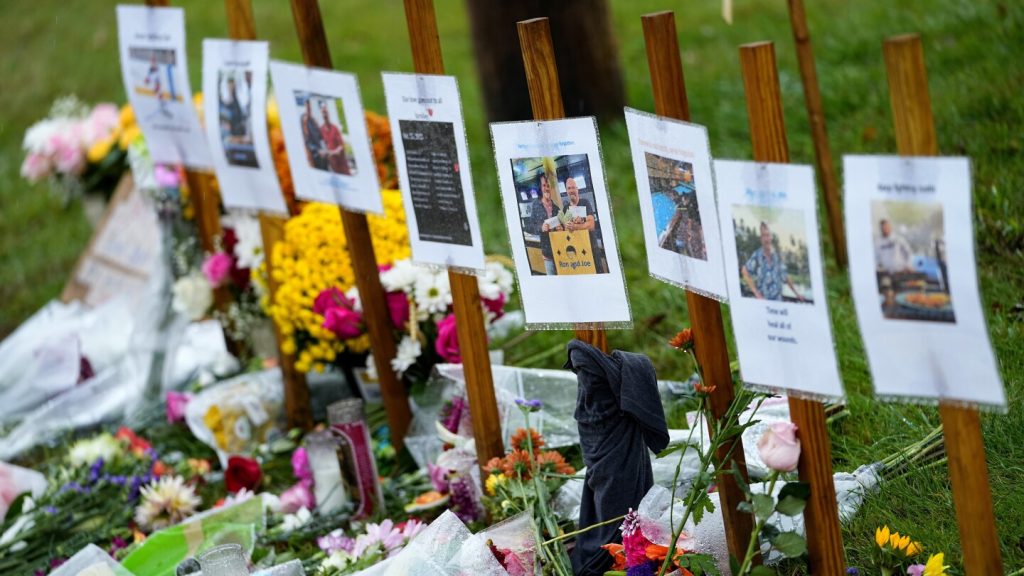The debate over a proposed red flag law in Maine intensifies as victims and their families speak out on both sides of the issue. Advocates for the law argue that it could have potentially saved lives in the deadliest shooting in Maine’s history, which occurred on Oct. 25. The law would allow family members or others to petition a judge to temporarily remove someone’s guns during a psychiatric crisis, instead of relying solely on police intervention. However, opponents, including the sister of one of the victims, see the proposal as rushed and potentially violating the rights of law-abiding citizens.
Jill Walker, the sister of a victim killed in the mass shooting, accused lawmakers of using the tragedy for political gain by pushing for the red flag law. She argued that the existing “yellow flag” law, which involves police taking guns into protective custody during a crisis, is adequate if followed properly. On the other hand, a survivor of the shooting believes that implementing red flag laws, along with other gun safety measures, could help reduce gun violence by preventing individuals in crisis from accessing firearms.
The shooting incident involved an Army reservist who had shown signs of paranoia and delusions, leading to concerns about potential violence. An independent commission found that existing laws should have been used to remove the gunman’s weapons. Under the current “yellow flag” law in Maine, police are responsible for initiating the process of removing someone’s guns during a crisis. In contrast, the proposed red flag law would allow individuals to bypass police and directly petition a judge, raising concerns about potential violations of rights and due process.
Critics of the red flag law argue that it could be easily weaponized and lead to the unjust removal of firearms from law-abiding citizens. They emphasize the importance of upholding the principle of innocent until proven guilty and express concerns about the potential misuse of the law in a politically divided climate. However, proponents point to statistics showing that states with comprehensive gun safety laws, including red flag laws, have lower rates of gun violence. They argue that such measures have been effective in preventing tragedies and saving lives.
The debate over the red flag law highlights broader discussions around gun violence prevention and firearms regulation in the United States. Some argue that the emphasis on individual responsibility in gun ownership overlooks the unique role of firearms in contributing to violence. Calls for stricter gun laws and mental health interventions are among the responses to address the complexities and challenges associated with preventing gun-related tragedies. Lawmakers are faced with balancing public safety concerns with protecting individual rights and addressing the root causes of gun violence in society.


